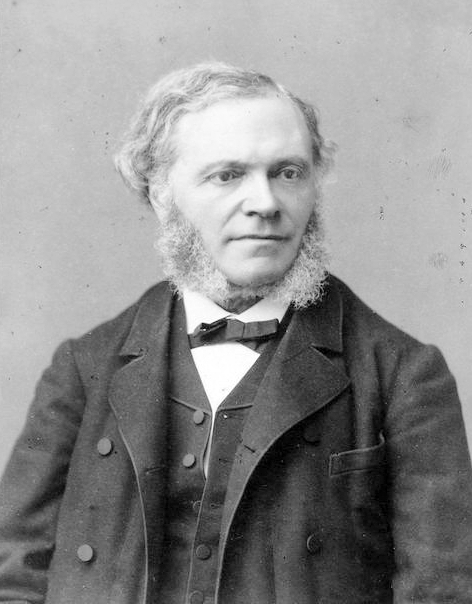Franck, César
César Franck was born at Liège in 1822. He composed a good deal of choral and vocal music; but among his later productions there are not many instrumental works. After 1875 we think of just the following (in chronological order):
Les Eolides, symphonic poem (1876)
Piano quintette (1879)
Le chasseur maudit, symphonic poem (1882)
Prelude, chorale and fugue, for piano (1884)
The Djinns, symphonic poem for orchestra with solo piano (1884)
Symphonic Variations, for piano and orchestra (1885)
Sonata for piano and violin (1886)
Prelude, aria and finale, for piano (1887)
Psyché, symphonic poem with chorus (1888)
Symphony in D minor (1888)
String quartette (1889)
All, however, are thrilling masterpieces, and the last quartette towers, even, above everything else.
He is known for two particular techniques: his "cyclic form" in which melodies and snippets derived from each other are not confined to single movements, but recur in different forms throughout a piece. And the second technique is his all-pervading chromatic harmony and counterpoint. It seems not to be to every one's taste, but I have always found chromaticism far more inspiring and memorable than mere diatonicism. We remember Mozart's madder moments do we not, and perhaps Franz Schmidt's second string quartette.
The interested reader may readily find on-line performances of all the wonderful pieces here mentioned.
César Franck was born at Liège in 1822. He composed a good deal of choral and vocal music; but among his later productions there are not many instrumental works. After 1875 we think of just the following (in chronological order):
Les Eolides, symphonic poem (1876)
Piano quintette (1879)
Le chasseur maudit, symphonic poem (1882)
Prelude, chorale and fugue, for piano (1884)
The Djinns, symphonic poem for orchestra with solo piano (1884)
Symphonic Variations, for piano and orchestra (1885)
Sonata for piano and violin (1886)
Prelude, aria and finale, for piano (1887)
Psyché, symphonic poem with chorus (1888)
Symphony in D minor (1888)
String quartette (1889)
All, however, are thrilling masterpieces, and the last quartette towers, even, above everything else.
He is known for two particular techniques: his "cyclic form" in which melodies and snippets derived from each other are not confined to single movements, but recur in different forms throughout a piece. And the second technique is his all-pervading chromatic harmony and counterpoint. It seems not to be to every one's taste, but I have always found chromaticism far more inspiring and memorable than mere diatonicism. We remember Mozart's madder moments do we not, and perhaps Franz Schmidt's second string quartette.
The interested reader may readily find on-line performances of all the wonderful pieces here mentioned.



Comment